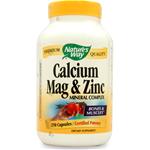Learn about five diet & nutrition mistakes made by many
1. “Low Fat” or “Fat Free” foods are probably not good for you.
There are a ton of products on the market that advertise as being “low fat” or “fat free”. There are some products out there that naturally fall into these categories, such as rice cakes or fruit. Those foods are fine, what you want to look out for are things that would normally have fat, but have been engineered to have reduced fat or no fat. Things like cookies, breakfast bars, brownies, etc. These items have probably had a ton of processed & artificial ingredients added to them so as to replace the texture of the missing fat.
Also it’s very important to realize that “Low Fat” or “Fat Free” foods can still make you fat. Fat is more easily stored in the body and will probably hit your thighs quicker than other sources of calories, but protein & carbohydrates contain calories which will convert to fat as well. So if you’re eating something that is “fat free”, but has 300 calories per serving, you’re really not doing yourself many favors. Continue reading “5 Diet & Nutrition Mistakes” »
Bacterial Vaginosis & Yeast Infections affect millions of women each year. In many cases a quick trip to the store or to the doctors office for medication is enough to cure the problem. However, there are many women out there who will only be cured for a short period of time and then their symptoms return & become chronic. Before you know it repeated trips to the doctor or the store do not result in a permanent resolution to the problem & it can be extremely frustrating. I’ll highlight some tips and products that may help you get back on track to having a healthy vagina. Continue reading “Cures & Treaments For Chronic Bacterial Vaginosis, Yeast Infections or Vaginal Itching” »
The Living With Gastroparesis blog just posted some interesting survey data about Gastroparesis which does include information about probiotic usage w/ Gastroparesis. Of 46 people who responded as taking probiotics, 25 reported mild to significant improvements of their Gastroparesis symptoms, which is actually impressive as I was not thinking they would have that large of an effect. It is important to note that the majority of positives results, were on the mild side, but some people did respond well to probiotics. Continue reading “What Is The Best Probiotic Supplement For Gastroparesis?” »
 I was recently reading an article from Time magazine about Zinc being used in 3rd world countries to fight childhood diarrhea which is a very serious cause of death in these countries. This got me to thinking that perhaps Zinc could be useful for people dealing with Irritable Bowel Syndrome diarrhea.
I was recently reading an article from Time magazine about Zinc being used in 3rd world countries to fight childhood diarrhea which is a very serious cause of death in these countries. This got me to thinking that perhaps Zinc could be useful for people dealing with Irritable Bowel Syndrome diarrhea.
Zinc is an essential metal the body needs to function. Not only could Zinc help with irritable bowel syndrome diarrhea, but it could also help other bodily functions & your immune system. I used to take Zinc quite a bit as a child because my mom wanted me to & we were able to get through a winter season without getting sick. Zinc can be hard on your stomach, so it’s important to take a supplement with food or get a multivitamin that includes it in the mix. Probably a good idea to take all your vitamins with food.
 I’d suggest trying out Nature’s Way Calcium, Magnesium and Zinc complex or Nature’s Way Alive Multivitamin. Note that Calcium can also help with chronic diarrhea as well.
I’d suggest trying out Nature’s Way Calcium, Magnesium and Zinc complex or Nature’s Way Alive Multivitamin. Note that Calcium can also help with chronic diarrhea as well.
Hopefully these guys will help you out in reducing whatever chronic diarrhea you’re experiencing.
Vitamin D & Irritable Bowel Syndrome
Was browsing over @ IBSGroup.org & found a blog post by user ‘absoluterob’ about Vitamin D deficiency. It is an interesting post on how Vitamin D can help reduce inflammation. Vitamin D is known as ”the sunshine vitamin” since most people produce it naturally by being out in the sun. I don’t get a whole lot of sunlight during my day & a lot of people in the northern hemisphere probably don’t get a lot either. Besides helping with inflammation it also helps with mood. Seasonal Affective Disorder which is basically seasonal depression is suspected to be caused partially by a lack of sunlight/Vitamin D production. So overall it would seem like supplementing Vitamin D would be a wise idea. Continue reading “Vitamin D & Irritable Bowel Syndrome” »
 I was recently reading an article from Time magazine
I was recently reading an article from Time magazine 